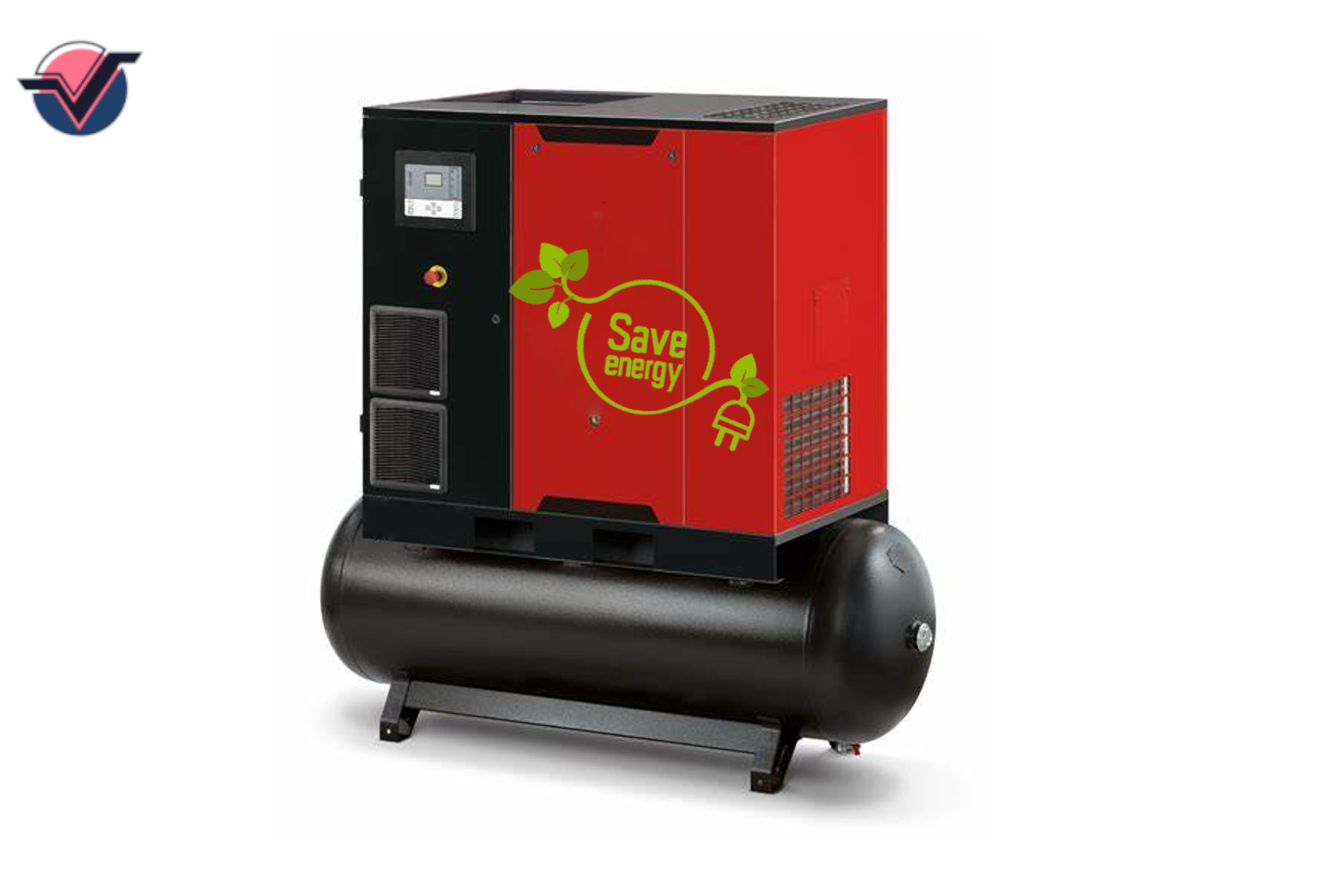Energy saving Air Compressor
Energy saving Tips:-
Loses, Fittings, & Waste: -
Regularly check your fittings, ensuring they create a tight seal. Loose fittings are a significant cause of leaks in air compressor units. If the fittings seem corroded or worn out, you should repair or replace them immediately. Consider inspecting hoses since they act as the system’s key connection points, and any damage to the hose could disrupt the entire system. Hoses usually get damaged during cold weather or bent, resulting in corrosion or cracks. Additionally, drain your unit’s receiver tank to avoid suboptimal operation due to a lack of storage capacity.
Proper controls maintain steady system pressure and ensure that only the required compressor units are brought online. This eliminates the inappropriate use of compressed air and ensures each unit is operating at peak efficiency. The controls are also helpful in turning off compressor units that are not needed or not being used.
The problem with most systems is the lack of adequate storage and When sizing piping, it should optimize the transfer of compressed air at the desired flow and pressure to the point of use. Having wider piping from two to three inches can minimize the pressure to around 50%. On the other hand, reducing the distance traveled by air can lower pressure by about 30%-40%. Having the wrong storage size can result in issues with production or increased costs due to wasted energy.
Air filters should be inspected monthly and replaced regularly. Drops in pressure as little as two psi can cost about 1% in compressor horsepower efficiency maintain air quality and reduce the chance of pressure dropping. There are several point-of-use and air-line filters in a typical system, which should also be maintained regularly.
common rule for most compressors indicates that every 2-psi reduction in system operating pressure can result in 1% in compressor energy-saving efficiency. Continuously adjust the pressure setting to reach the lowest possible setting without compromising performance. Additionally, centralized systems using multiple compressors can be set to run using a central controller. Turning down the pressure on your compressor even 10 PSIG is a 5% savings in electrical costs.
